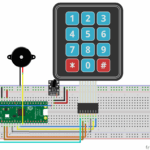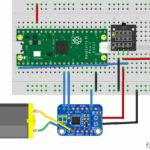Legal
All of the resources on this site are published under the Creative Commons Share Alike 3.0 license unless otherwise stated which means you’re free to use, distribute and adapt them as you see fit providing that you attribute the original author and don’t claim credit for someone else’s work.
You are free to use create.withcode.uk. It’s in the early stages of development so I can’t make any guarantees of availability or reliability I’m afraid. If you find a fun use for it, I’d love to hear from you.
Credits and External Code Sources:
create.withcode.uk relies on some fantastic free code libraries which do much of the hard work in the background.
Skulpt:
Skulpt is an in-browser implementation of Python by Scott Graham and published under the MIT license. I’ve used it in order to translate the python code that you type into javascript code that can actually run in your browser.
jQuery:
jQuery is known as the “Write less, do more” javascript library. It’s mostly published under the MIT license or CC0. I’ve used it to cobble the site together as quickly as possible.
jQueryUI:
jQueryUI lets you create and control simple user interfaces using jQuery. As above, it’s mostly published under the MIT license or CC0. I’ve used it for buttons, sliders and radio buttons for the user interface.
jQueryUI Touch Punch:
jQueryUI – despite attempting to be cross-platform and cross-browser compatible – doesn’t work very well on touch screen devices. jQueryUI Touch Punch is a small hack to fix this. It’s published under the MIT or GPL Version 2 licenses. I use it to allow you to be able to drag the code / options window around to move it on a mobile device and to make the sliders work on the options window.
Micro:bit
The BBC micro:bit is a fabulous little programming device that’s great for getting students seeing their code work in real life. At the time of writing, the official micro:bit site lets you write code in python but doesn’t let you run it. The micro:bit python simulator on create.withcode.uk attempts to fill this space. I’ve contacted BBC for clarification about the legality of this simulator in terms of intellectual property but haven’t heard anything back yet. I hope it’s pretty obvious that the BBC doesn’t endorse this site or any of the contents on it. Some of the code in the simulator (the builtin images and music melodies) are adapted from the micropython source code which is published under the MIT license.
Further information
I’ve tried hard to acknowledge every source or resource used on this site and to only use images that either I’ve created or that are in the public domain. If I’ve missed anything, you believe I’ve used a resource that I haven’t referenced correctly or you’d like any further information, please get in touch.







